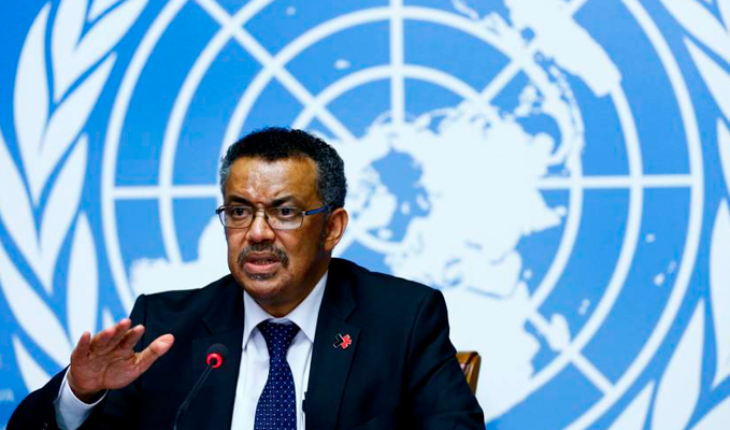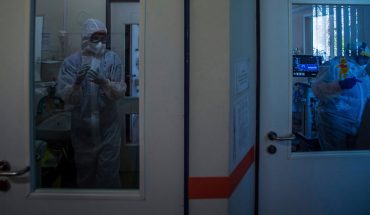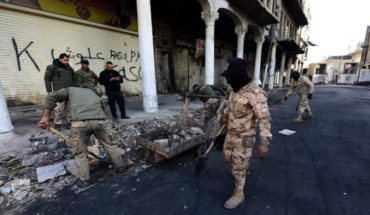Ursula von der Leyen Executive proposes to capitals a “gradual” and “coordinated” uprising of pandemic-imposed confinements replacing the states of emergency that govern more than half of countries with more concrete but equally restrictive measures until a vaccine or treatment is found. The document also advocates a return to jobs, maintaining “social distance” and telework.
The new situation has also forced the World Health Organization to update its pandemic strategy. Its CEO, Tedros Adhanom Ghebreyesus, stressed Tuesday that while “some countries are studying when they can lift” the restrictions imposed, “others that are valuing them is whether and how to introduce them.”
“In both cases, the goal should be to protect people’s health and [las medidas] should be guided by what we know about the virus. We are all learning and adapting our strategies to the latest available evidence,” Ghebreyesus said in a telematics statement.
The agency has updated its strategy according to six criteria that countries must meet before lifting confinement measures. The first is that the transmission of the virus “must be controlled”. The second, that health systems are in a position to “detect, test, isolate and treat each case”, as well as “track your contacts” risk to take appropriate action with them. The third point puts the focus on key areas in the evolution of the epidemic: residences and hospitals. “The risks of outbreaks in these facilities must be minimized,” he argued.
The other three criteria highlighted by WHO are the adoption of “prevention measures” in all those areas where people must continue to attend (depending on the country, workplaces, education…), the proper management of imported cases and training society to learn how to live together and reduce risks to the virus.
At European level, Austria and Denmark have put in place a timetable to restore normality, step by step. In the face of these first steps, the European Commission wants to prevent the exit from confinement from rising from the disputes between countries that led to the entry. Then, some countries (such as France and Germany) imposed restrictions on the exports of masks; borders were closed, making it difficult to circulate health equipment; and some capital refused to welcome Covid-19 sufferers from other EU partners. “Respect and solidarity between States remains essential,” the draft communication that will now be presented at a press conference by Von der Leyen and by European Council President Charles Michel holds boldly.
The Community Executive warns that the publication of this roadmap is not a “signal” to lift confinements, but tries to answer the question of how they should relax when the time comes in each country. In fact, the document warns that “the virus continues to circulate”, so that “any level of gradual relaxation of confinement will inevitably lead to the corresponding increase in new cases”. And this will require following the evolution of the coronavirus to open or close your hand on the return to the street, which means being prepared to “adjust and reintroduce new measures if necessary”. “We’ll have to live with the virus until a vaccine or treatment is found,” he riveted.
The Commission sets out three main criteria on which a country must rely in order to take the decision to re-launch the economic and social gear. The paper, prepared with the advice of the European Centre for Disease Prevention and Control (ECDC), calls for capitals to be secured before the “spread of the disease has significantly declined for a sustained period of time”, which the health system can assume in terms of access to medicines and protective equipment or the availability of intensive care beds , and that there is enough capacity to detect and control the spread of the virus, including “large-scale” testing. In the face of doubt, the Commission notes that any action must always be based on science and have public health in the focus.
Once the decision is taken, Brussels recommends that countries take gradual actions, at different steps and with sufficient time between actions to be verified. The idea, when the time comes, is to leave behind the “general measures” to replace them with other “specific” ones, focused on protecting the elderly, keeping citizens diagnosed or with Covid-19 symptoms quarantined, or replacing the states of emergency that govern in half of EU countries with concrete interventions.
The restart of the economy should also be done, according to the document, progressively, so that not all people return to their office or factory at the same time. Concentrations of people should also be allowed little by little, for example, by trying to get schools to set up dining hours and encourage online classes, that there is a maximum capacity in stores or that the bars limit their schedules. Coordination between countries is key to the strategy to open borders, especially for the first phase, which should be to terminate existing controls within the EU. The second step will be to open the Union border to allow non-residents to enter the Community bloc.
Brussels refers in its document to prevention by citizens. Governments will need to continue campaigns to maintain hygiene habits acquired during this crisis and social distance guidance. And, according to the ECDC, it recommends the use of masks, although “health workers” should always have priority in their use.
Information from: The Country





